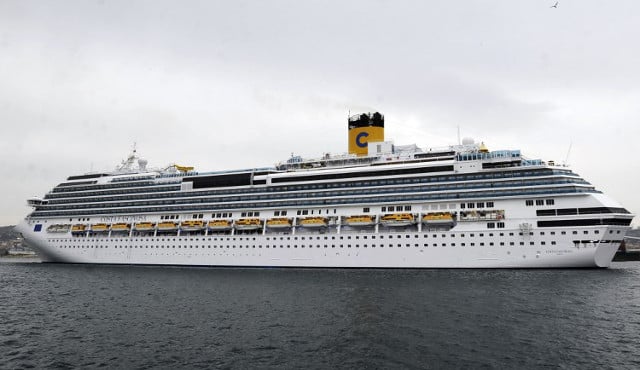
DRUGS
‘Cocaine cruise ship’ smugglers on trial for transatlantic hash and coke trade
Thirty-four people who posed as tourists on Costa cruise ships have gone on trial for their part in a vast drug smuggling network that took hash from Morocco to Brazil and cocaine from South America to Europe.
Published: 22 May 2017 16:51 CEST

Photo: AFP
The accused allegedly strapped the drugs to their bodies to bring it on or off the pleasure ships in the scheme that ran for nearly two years from early 2012, a court in Marseille has been told.
The investigation focused on thirteen cruise trips which were used to transport large quantities of Moroccan cannabis to Brazil, where it was bartered for cocaine that was 97 percent pure.
“We are judging an international smuggling ring that operated between three continents using cruise ships. This is new, this is a first,” said judge Patrick Ardid.
“The people who put this in place are innovative and audacious and were able to create new routes for cocaine,” he said at the start of the trial that is expected to last three weeks.
Most of the accused were low-level “mules” who came from a same working class area of the city of Nice and were used to carry the drugs on and off the cruise ships.
“Supervisors” would travel by plane and await the “mules” in Casablanca in Morocco to oversee operations.
The investigation, which began began as on offshoot of a 2013 murder inquiry, led police to place undercover French and Spanish officers on the Costa Fascinosa cruise ship in March 2014 as it travelled from Brazil towards Venice in Italy.
As the vessel approached the Canary Islands, the officers arrested most of the smuggling team and seized 25 kilos of coke.
The cruise ship company also helped police with investigation, judge Ardid said. He said that staff on the ships “wondered what these young people were doing on cruises with pensioners if they were not accompanying their grandparents.”
The use of cruise ships to import illegal drugs is however not as unusual as the judge believed.
In recent years drug seizures have been made at a number of ports in Europe after police searched disembarking passengers who had hoped they would be able to slip through the relatively lax checks carried out on cruise ship tourists.
The doomed Costa Concordia, which sank in Italian waters in January 2012 with loss of 32 lives, was reportedly carrying a huge shipment of Mafia-owned cocaine when it went down.
By Rory Mulholland

Url copied to clipboard!


 Please whitelist us to continue reading.
Please whitelist us to continue reading.